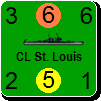Sardaukar
Posts: 9847
Joined: 11/28/2001
From: Finland/Israel
Status: offline

|
quote:
ORIGINAL: elxaime
Finland survived due to Soviet policy considerations plus the Finns decision to seek a separate peace. No disrespect to the Finns, but the Soviets could easily have occupied the entire country in 1944-5. Stalin decided he could get all he wanted without the burden of occupation. And this is what happened - Finlandization.
"Easily" is bit pushing it. But ultimately Soviets could have done it, just like they could have done it in Winter War. Stalin decided that price was not worth the prize.
Largest battles in 1944 all ultimately ended with Finnish defensive victories. E.g. Tali-Ihantala was size of El Alamein battle or more and quite unknown among especially Anglo-Saxon historians.
http://en.wikipedia.org/wiki/Battle_of_Tali-Ihantala
http://en.wikipedia.org/wiki/Battle_of_Vuosalmi
And in Battle of Ilomantsi, encircled couple of Soviet Divisions.
http://en.wikipedia.org/wiki/Battle_of_Ilomantsi
This was the ninth major Finnish defensive victory in only a few weeks' period, since the main Soviet offense against the Finnish defences was launched in June 1944. Moscow could now only decide that the Finns had plenty of fight left in them.
Those battles could be seen as example of Soviet Operational Art of War in 1944, that worked so well vs. Germans and others. Unfortunately for them, moving the "schwerpunkt" first to east on Karelian Isthmus and then to NE Karelia got them into unfavourable terrain unsuited for mechanized warfare and ideally suited for Finnish infantry tactics. Thus, Battle of Ilomantsi, led by M. Gen. Raappana, was often called in FDF as "last lesson from encirclement battle master".
Don't get me wrong, that campaign was not victory in normal sense, but bitter struggle of survival. Both sides fought with determination and outstanding courage. And no Finnish soldier fighting vs Soviets would say that they lacked courage or determination in any phase of war. Even in summer 1941, Soviets fought very hard. One good literature anecdote is from Väinö Linna's "Unknown Soldier" (unfortunately english translation doesn't at all do credit to original book, to extent that he himself considered to withdraw the version from market). He himself witnessed the summer 1941 battles as NCO in infantry. And while book itself is fiction, it is based on his experiences, so quote is appropriate:
"Nobody really understood what Russians were defending, since there seemed to be so little to defend. But they seemed to like to keep it, to extent that they preferred to die behind big piles of empty casings."
But it's best said by ex-Finnish president Mauno Koivisto, who himself fought in Battle of Ilomantsi:
The Finnish President Mauno Koivisto spoke at a seminar held in August, 1994, in the North Karelian city of Joensuu, to celebrate the 50th anniversary of the Finnish victory in the crucial Battle of Ilomantsi. The future President of Finland witnessed this battle as a soldier in a reconnaissance company commanded by the legendary Finnish war hero and a Knight of the Mannerheim Cross, Captain Lauri Törni (who later became a legend also in USA as a Green Beret under the name Larry Thorne, raised to the rank of major upon his disappearance in Laos in 1965, during the Vietnam War):
In the summer of 1944, when the Red Army launched an all-out offensive, aimed at eliminating Finland, the Finns were "extremely hard-pressed", President Koivisto itenerated, but they "did not capitulate". "We succeeded in stopping the enemy cold at key points," the President said, "and in the final battle at Ilomantsi even in pushing him back."
"Nobody respects a country with a poor army, but everybody respects a country with a good army. I raise my toast to the Finnish Army and the representatives of it here, General Heinrichs and General Oinonen" - Josef Stalin, April 6th 1948.
< Message edited by Sardaukar -- 12/6/2011 12:52:10 PM >
_____________________________
"To meaningless French Idealism, Liberty, Fraternity and Equality...we answer with German Realism, Infantry, Cavalry and Artillery" -Prince von Bülov, 1870-  |
 Printable Version
Printable Version









 I'm gettin too old for this
I'm gettin too old for this
 And here's it's about the 1944 Red Army...
And here's it's about the 1944 Red Army...




 New Messages
New Messages No New Messages
No New Messages Hot Topic w/ New Messages
Hot Topic w/ New Messages Hot Topic w/o New Messages
Hot Topic w/o New Messages Locked w/ New Messages
Locked w/ New Messages Locked w/o New Messages
Locked w/o New Messages Post New Thread
Post New Thread